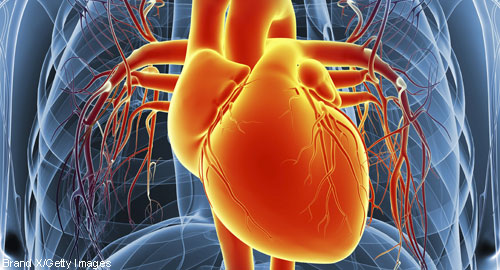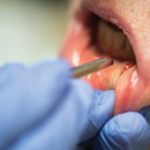 Patients living with rheumatoid arthritis (RA) are up to two times more likely to experience a cardiovascular event, such as heart attack or stroke.1 Often, patients are so focused on managing their RA and achieving functionality that they don’t realize they are at greater risk of an adverse cardiovascular event. Nor do they realize what they can do to reduce their risk, observes Meenakshi Jolly, MD, MS, a practicing rheumatologist and professor of rheumatology at Rush University Medical Center, Chicago.
Patients living with rheumatoid arthritis (RA) are up to two times more likely to experience a cardiovascular event, such as heart attack or stroke.1 Often, patients are so focused on managing their RA and achieving functionality that they don’t realize they are at greater risk of an adverse cardiovascular event. Nor do they realize what they can do to reduce their risk, observes Meenakshi Jolly, MD, MS, a practicing rheumatologist and professor of rheumatology at Rush University Medical Center, Chicago.
Recognizing this challenge, Dr. Jolly sought a way to share the cardiovascular knowledge that resonated with her patients in a way that empowered them to better their own cardiovascular health.
She developed a Web-based video intervention that can be shared via a link for quick and easy dissemination. “I needed a tool that would give my patients the knowledge they need about cardiovascular risks in a way they could understand and experience on their terms—maybe even as they wait for an appointment or in the comfort of their home,” she says.
Connecting with Patients Through Video Education
Enlisting the support of cardiovascular risk prevention specialist Rasa Kazlauskaite, MD, and social psychologist Lisa Walt, PhD, Dr. Jolly and these experts created a 25-minute video that outlines heart disease facts, such as the symptoms of heart attack and increased risks of heart disease for RA patients. The video then features real RA patients discussing the steps they have taken, such as exercise, to improve their cardiovascular health.
“We worked through several iterations of the video, and each of us spent significant time editing [it] to ensure the tone of the video and the information shared would keep a patient’s attention without feeling too long or off topic,” Dr. Jolly says.
This attention to detail has paid off, according to recent findings on three-month retention rates of improved cardiovascular knowledge in participating RA patients. Dr. Jolly’s research is testing the video’s efficacy using a questionnaire taken by participating patients before and after watching the video.
Dr. Jolly is submitting these latest data for a presentation at the 2018 ACR/ARHP Annual Meeting. The initial study findings in 86 RA patients tested before and immediately after watching the video presented at the 2017 ACR/ARHP Annual Meeting showed several significant improvements, such as:2
- Patient knowledge of information on risks associated in general with heart disease increased 4% (moderate effect size 0.25); and
- Patient knowledge of information on risks associated with RA-specific heart disease increased 11% (large effect size 0.71).
Currently, Dr. Jolly and her team are also investigating a control group of RA patients who haven’t seen the video and receive only the initial heart disease questionnaire on cardiovascular risks in general and for RA patients. Members of this control group are then tested three months later to understand how that information was retained.



